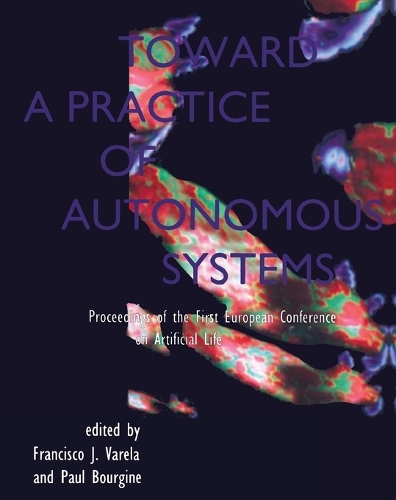
Toward a Practice of Autonomous Systems: Proceedings of the First European Conference on Artificial Life
(Paperback)
Publishing Details
Toward a Practice of Autonomous Systems: Proceedings of the First European Conference on Artificial Life
By (Author) Francisco J. Varela
Edited by Paul Bourgine
MIT Press Ltd
MIT Press
2nd April 1992
United States
Classifications
Tertiary Education
Non Fiction
Biology, life sciences
006.3
Physical Properties
Paperback
534
Width 213mm, Height 269mm, Spine 33mm
1406g
Description
Artificial life embodies a recent and important conceptual step in modern science: asserting that the core of intelligence and cognitive abilities is the same as the capacity for living. The recent surge of interest in artificial life has pushed a whole range of engineering traditions, such as control theory and robotics, beyond classical notions of goal and planning into biologically inspired notions of viability and adaptation, situatedness and operational closure. These proceedings serve two important functions: they address bottom-up theories of artificial intelligence and explore what can be learned from simple models such as insects about the cognitive processes and characteristic autonomy of living organisms, while also engaging researchers and philosophers in an examination of the epistemological basis of this new trend. Contributors include: H. Bersini, D. Parisi, R.A. Brooks, C.G. Langton, S. Kauffman, J.L. Denenbourg, P. Maes, J. Holland, T. Smithers, H. Swefel, H. Muhlenbein.
Author Bio
Francisco J. Varela (1946-2001) was Director of the Centre National de Recherche Scientifique, Professor of Cognitive Science and Epistemology, CREA, at the Ecole Polytechnique, Paris, and Cofounder of the Mind and Life Institute. Paul Bourgine is the honorary director of RNSC, the French National Network of Complex Systems, former director of the CREA laboratory at Ecole Polytechnique, and founder of the Complex Systems Institute, Paris. He is also a co-founder of the CECOIA conferences in economics and artificial intelligence (1986), the ECAL conferences in artificial life (1990), the ECCE conferences in cognitive economics (2004) and the ECCS conferences in complex systems science (2005).
